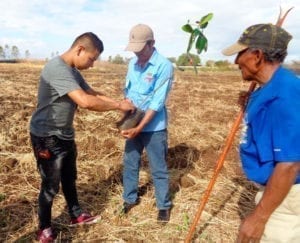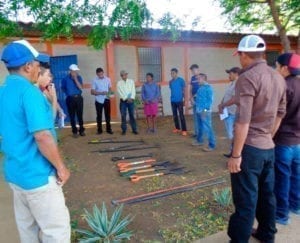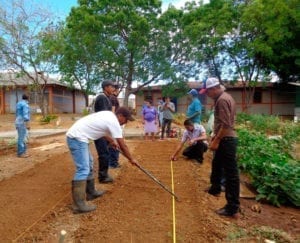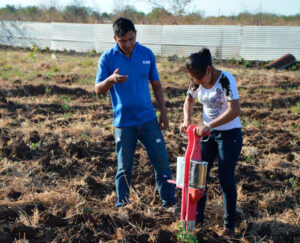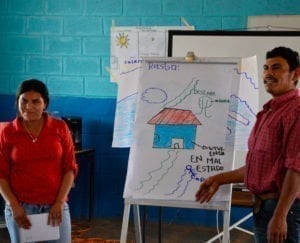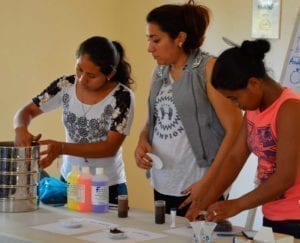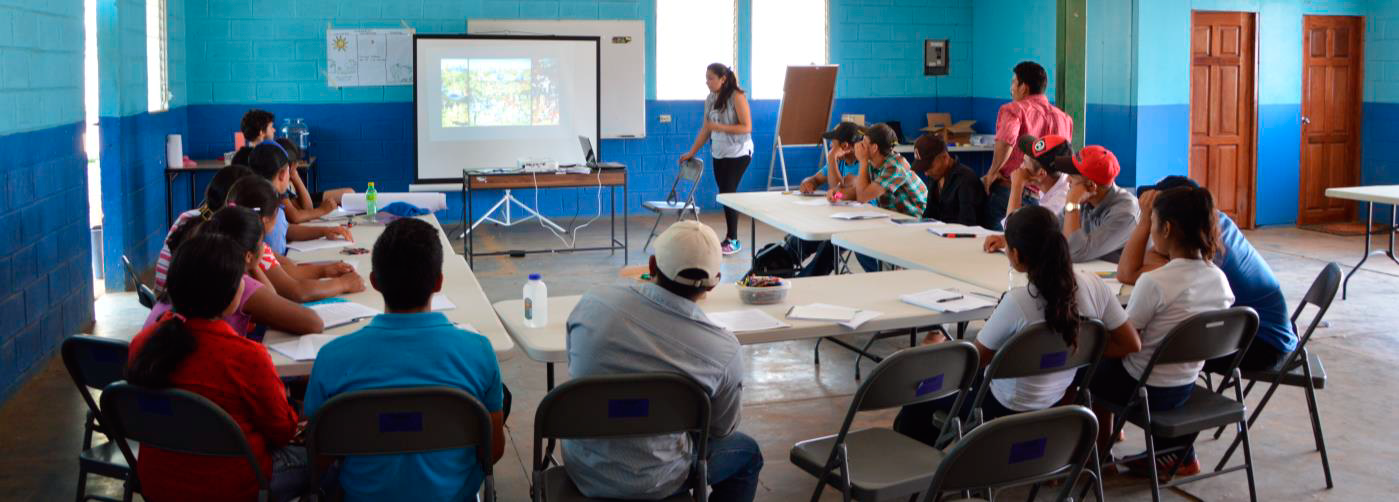
The risk situation in which the Dry Corridor of Nicaragua faces climate change generates great challenges for small producers, men and women, in this region, which require a strategy to diversify current agricultural activities and a correct technical training to be able to apply them.
To respond to this problem, Social Promotion, together with the Nicaraguan Foundation of America, and with funding from the Italian Episcopal Conference, have launched a project whose general objective is to promote the implementation of sustainable agricultural practices that allow adaptation to change climate of small Nicaraguan producers, men, and women, and mitigate as well its negative impact.
To achieve this, various activities have been planned, such as the correct conditioning of the physical facilities of the Agricultural Training Center (CEA): rehabilitation of the property, establishment of demonstration plots, repair of greenhouses, acquisition of materials and equipment, etc. The improvements undertaken to date allow the training to be carried out in suitable places and that a greater number of students can be trained in topics of conservation agriculture and agro forestry systems. Likewise, reforms have been made in the residence that the producers, men and women, use during their training, making their stay more comfortable.
On the other hand, work has been carried out on the development of pedagogical resources suitable for promoting the learning of small producers, men and women, on issues of conservation agriculture and agro forestry systems. These activities have strengthened CEA’s capacity to deliver the workshops now and in the future.
During this first half of the project, the CEA staff and a consultant have planned the courses to be taught, the most appropriate methodology and have developed the agenda. Materials on conservation agriculture, agro forestry systems, biointensives, biodigesters, lombrihumus, criollo seeds, traditional crops, value chains, beekeeping, vegetable cultivation, water harvesting, marketing, and commercialization have been developed. The material is distributed among the participants who can take them to their homes for future reference. We will keep working on the design of these materials to make them more attractive and be able to reproduce them on a large scale in the future
Finally, efforts have been made to strengthen small-scale producers’ competences for the adoption and implementation of sustainable agricultural practices and technologies that will enable them to counteract the environmental deterioration of their productive resources.
Training began in 2018, and up to now, about 80 producers, men and women, have been trained. Each course has approximately 20 participants who reside at the Center during the course. The training has theory and practice in the aforementioned subjects.
- Nicaragua


